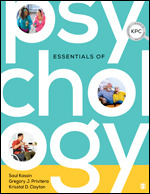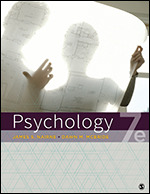You are in: North America
Change location
You are here
Creating School-Work-Family Balance

Creating School-Work-Family Balance*
From A Guide to Student Success: Part 5
Research has demonstrated that there is no simple, easy answer to balancing multiple roles such as being a student, an employee, a parent, a friend, a partner, and a family member, to name just a few roles. In fact, many psychologists have suggested that “balancing” these roles isn’t the correct way to think about them. Is your life ever really balanced? And with one more major life role added to the list—student—it is important to keep expectations in check. This is going to be difficult, but that’s okay. It can be done if you use the resources you have around you...and science.
- Time management is key to reducing stress and anxiety. Plan out your day and week, and stick to a schedule. Helpful tip: It’s easy to lose track of time, so setting reminders on your phone or watch will help you to keep track of what you need to be doing and when you should be doing it. Set a timer when you are studying so that you remember to get up and move and take a break, but also set a timer to remind yourself to get back to studying.
- Pick your method of tracking (e.g., when assignments are due, when you should start studying for a test) and stick to it. Many people like to use paper calendars so that they can check off what they’ve done and color-code what needs to be done. If you choose this method, pick a calendar that fits in your bag and take it everywhere.
- You may choose to use an online calendar. That’s a great method, too. You certainly can color-code assignments, due dates, and deadlines, as well as prioritize activities and set alerts. The key to using a calendar (electronic or paper) is to remember to look at it...every day. Without exception. Do not rely on your memory.
- Prioritize sleeping and exercising. These two activities go together; research has demonstrated that the relationship between sleep and exercise is bidirectional. More specifically, exercise helps you sleep better. And when you sleep better, you are more likely to exercise. Also, research has shown that increasing both activities increases recall. That is a win-win-win! You might think that it’s more important to study than to sleep for a full 7 or 8 hours, or take a brisk walk, but that is a myth. The less sleep you get, the less efficient your brain will be. The same goes for exercise. Your brain needs oxygen to function at its best, and there is no better way to get oxygen to your brain than through exercise.
- Ask your academic advisor about your school’s counseling center. The transition to college can be difficult. It’s always a great idea to build a support system as early as possible, and counselors are trained to provide exactly that. They can also direct you to support groups on and off campus.
- You might be a first-generation college student or a student who is a caretaker of others. There will be times when you might feel pulled in different directions, or times when your family will not understand why you need to spend so many hours on your studies. Helpful tip: Keep the lines of communication open with your family, which will help them get a better grasp of what you need to succeed. If you must be in a quiet room for 3 hours a day to study, let them know. If you need to be on campus late that week to prepare for a big project, tell them! Many students who try to balance school and family have found that discussing needs and responsibilities can create a supportive environment.
- Practice mindfulness throughout the day. Many smartphone apps are available that provide guided meditation. Also, many smartwatches have a 2-minute mindfulness activity. For some, it might be praying. For others, it could just be sitting still and being fully present in the moment. There are many ways to practice mindfulness. Pick a technique that works for you and practice consistently. Helpful tip: Schedule “mindfulness moments” into your day.
- Limit media exposure: Being a student can be stressful. If you add in personal or global events, it can be downright unmanageable. It is important that you take care of yourself so that you can prosper as a student, friend, family member, and community member. To help manage stress today, the American Psychological Association offers some great tips. One of the best tips is to limit media exposure. Media are there to keep you interested, so they often focus on the negative so that viewers will have a more visceral reaction. Keep that in mind . . . and limit the amount of time you spend on social media and news outlets.
Next - Part 6: Effective Distance Learning
*Sources:
Essentials of Psychology
Saul M. Kassin
Gregory J. Privitera
Krisstal D. Clayton
Psychology, Seventh Edition
James S. Nairne
Dawn M. McBride
- Guide Contents
- Tips and Tricks for Student Success: The Basics
- Getting the Most Out of Your Course
- Understanding Your Course Materials
- Best Practices for Studying and Preparing for Tests
- Creating School-Work-Family Balance
- Effective Distance Learning
- Helpful Resources to Help You Succeed
- Making the Most Out of Your Professor’s Office Hours
- Summary of Helpful Tips




